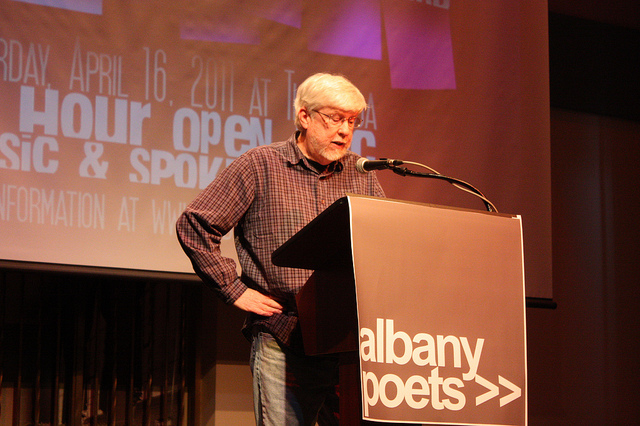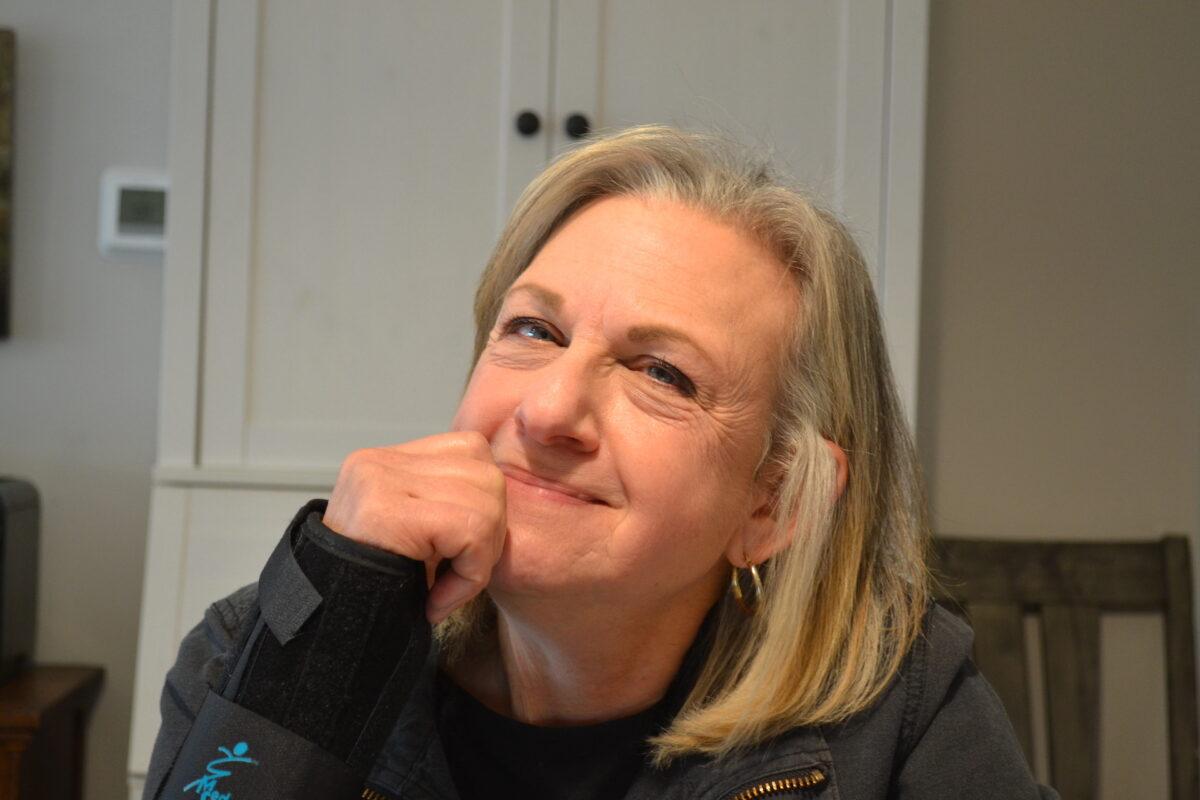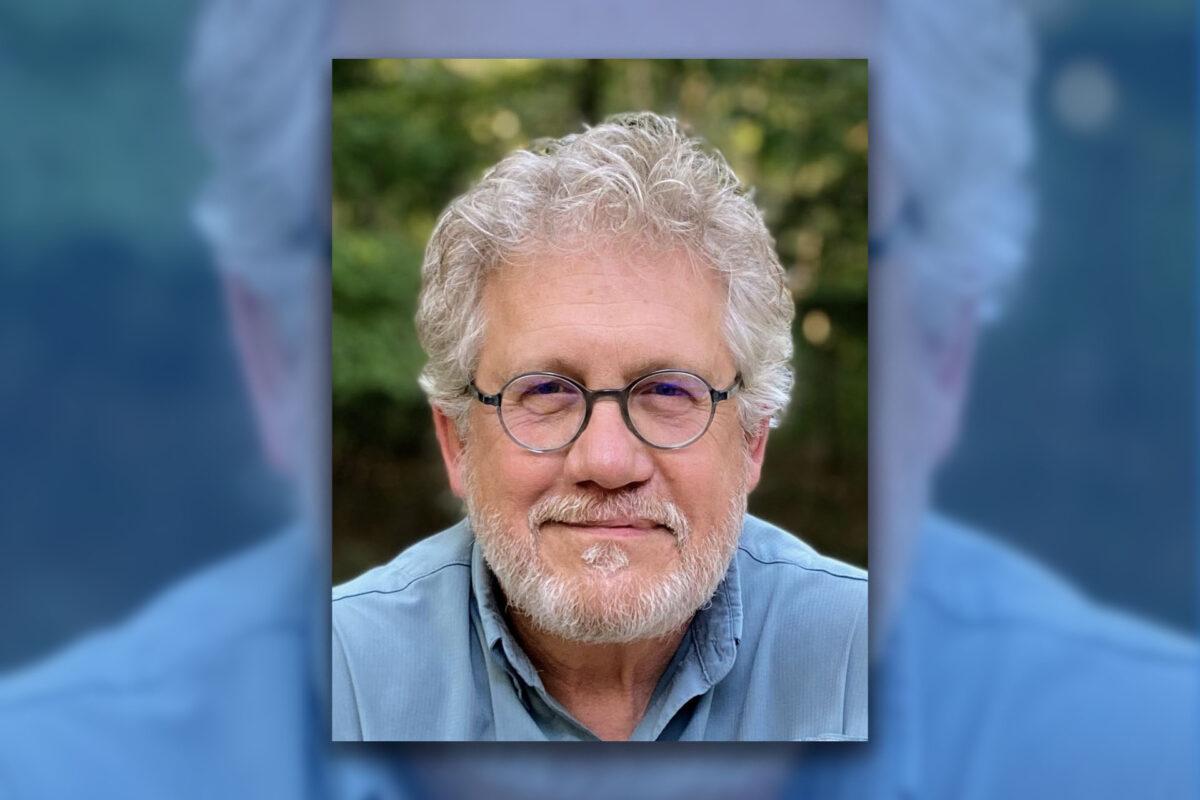Bob Sharkey is active in local open mic scene; on the board of the Hudson Valley Writers Guild; published in many journals; organizer of the Stephen A DiBiase poetry contest.
Bear
Morning was clear, crisp, yet still very green.
Woodchuck standing on a mound, played
the role of gatekeeper with glaring eyes.
A deer leapt away over underbrush,
another, nonchalant, grazed as I passed.
On the path around the island’s edge
the idea of a stray black bear being there
ready to come bounding out of the woods
and what should I do? Oh, raise my
arms and yell! Would that work?
What if it, quiet, suddenly came out of hiding
to push me over the cliff way down there
where now a great blue heron glides just
above green scum at the water’s edge?
Over in the Burgh at Earl’s,
I talk about my bear fear.
Earl puts out chunks of bread and salami,
Mary Bean brings in a tray carrying three
blondes wearing their long black skirts.
Their table is spread, not with singularities,
but with freedom from the tyranny of meaning.
I finish my babble about the bear,
Earl remains as silent as the woodchuck.
Mary says, “Did you check yourself for ticks?”
Libbytown
City planners want to undo decades of disconnection
under east/west on Congress Street exit/entrance ramps.
Ramps put in over our homes, fields, marshes,
over the back end of the suddenly felicitous city,
bulldozed memory of our snow forts, sled paths,
red-winged blackbirds swarming the berry bushes,
kamikaze-diving kingfishers, crunched mussel shells,
grass fires, tadpoles, pickup baseball games on trampled grass,
our secret places in the thickets and woods,
and all that the tides brought in for our curious inspection.
As if a few concrete sidewalks or pedestrian islands
could restore the vitality of our neighborhood.
A neighborhood severed in two, its heart ripped out, tossed aside
like some nasty, useless thing in the way of progress.
Saint Patrick’s school and church that lived on for awhile,
then died like branches cut off from nourishment,
their customs and ceremonies in memory.
In memory our people, their stories, tears, and laughter.
Where now under the 295 overpass, an abutment
supports a small metal plaque that remembers
“Libbytown.”
Hiroshima
At the intersection of war heroes Washington and Henry Johnson,
in the shade of a struggling maple and the Spanish American War memorial,
we read.
The air is crisp, blue sky has wisps of clouds.
Sirens, tire slaps on pavement, beeps of backing trucks
and kneeling buses, hip hop soundtrack
as we read.
A man carries flowers, two women laugh and bump their wide hips,
people talk on cell phones, a few horns blare,
young people stop and stare
at those of us drilled to atom bomb preparedness
who still read on in this park
about those who sought refuge in their parks in August 1945.
Some wisps shape into a couple of praying angels
hovering above us
as we finish reading.
Undisclosed Subject
It was late in the penultimate day of the year. His birthday. He heard the bell ring. Then the distinct boxy sound of an UPS truck pull up to the front of the house. Not from the usual direction. As he thought “that sequence is wrong” shots rang out. Bam. Bam, bam, bam. One bullet clanged off the iron railing of the front steps. A growl of the truck quickly accelerating down the street. He looked out the glass atop the door. Saw a body sprawled head-first down the foot of the steps. After dialing 911, he went outside. It was a young woman, still breathing, likely shot in the back, no obvious bleeding or places to apply pressure. Whatever was happening was happening inside of her. He felt around her clothing and under her hijab for other wounds. She grasped his arm. He assured her that help was on the way. “Hang in there,” he said. He asked why she’d come to his door. “I was looking for true north,” she gasped. She smiled and whispered something. “I looking forward to sever you again soon,” is what he heard. She tightened her grip then went limp. The light from her eyes dimmed as EMTs ran up his driveway. He found a compass at the top of the steps.






